The Chronically Dehydrated – Symptoms and Prevention

Chronically dehydrated. It’s a serious concern. It is far more common than you may realize. I’ve read that up to 75% of Americans are chronically dehydrated! Not only will you suffer immediate problems, but the long term chronically dehydrated may develop into painful kidney stones. You don’t want that!
The lack of hydration is the number one trigger of daytime fatigue. This is a problem that most people don’t realize. That is, their symptoms are being caused by not drinking enough fluids.
Also, older people often do not recognize that they’re thirsty (part of aging). As you age you lose some of your thirst instinct that you had when you were younger. You may not realize how thirsty you really are. And that could lead to becoming chronically dehydrated.
I’ve also read that losing just 2% of your body weight in water weight – compromises overall judgment by 25%, and severely limits physical endurance. Since water weighs 8-pounds per gallon, it doesn’t take much to lose 2%, or to be ‘chronically low’. That’s just a quart and a half low – for a 150 pound person (for example).
Vigorous activity, excessive sun exposure, and forgotten water breaks, are just a few factors that will affect your hydration level.
Electrolytes For Quick Boost From Being Dehydrated
First, it’s a good idea to keep electrolyte mix for just in case you need a quick boost or recovery from being dehydrated. For example, this one is clearly the most popular..
Liquid I.V.
(amzn)
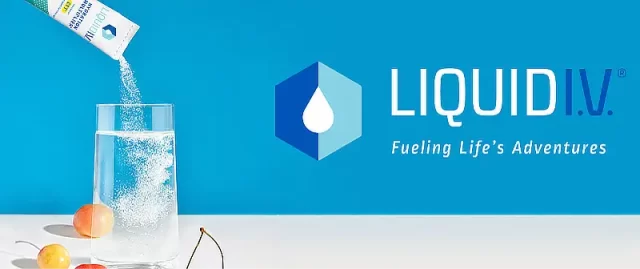
Homemade DIY Recipe Mix For Dehydration (in a pinch)
- 1 Cup Water
- 1/8 teaspoon salt
- 1.5 teaspoons sugar
How We Become Chronically Dehydrated

A person who is doing nothing, at rest, loses more than half a gallon (2 quarts) of water in a day. Once you add in exertion, climate, and other factors, this number goes much higher…
For every quart of sweat that escapes your body, your heart rate increases by about 8 beats per minute and your system becomes more stressed.
Causes of Dehydration
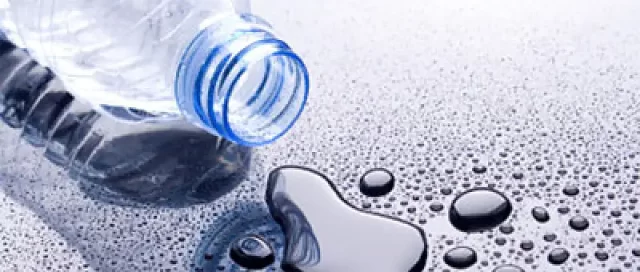
- Simply not drinking enough water!
- We lose water routinely when we breathe, and humidified air leaves the body
- Physical activity and exertion / sweating
- Illness / fever
- Hot temperature environment, sunlight
- Excessively high humidity or low humidity
- Breathing through the mouth more than the nose
- Diarrhea
- Vomiting
- High winds
- Cold temperatures (yes, during Winter too)
- High protein, fat, and sodium diet
- Coffee, Alcohol
Early Signs & Symptoms Of Water Dehydration
Symptoms could include any of the following.
- Headache
- Dry, sticky mouth
- Irritability
- Dizziness or lightheaded
- Head rushes
- Nausea / loss of appetite
- Dry mouth, cracked lips, dry skin
- Mild disorientation and confusion
- Fatigue / weakness / lethargy
- Decreased urine output / dark colored urine
- Muscle weakness
- Loss of appetite
- Constipation
- Cramps
Have you ever had a dehydration headache? (It’s one common symptom).
A dehydration headache may occur after sweating when the body loses essential fluids to function properly. … When the body is dehydrated, the brain can temporarily contract or shrink from fluid loss. This mechanism causes the brain to pull away from the skull, causing pain and resulting in a dehydration headache.
– MedicalNewsToday.com
The Best Way To Know If You’re Dehydrated
If you‘re losing more fluids than you‘re taking in, dehydration is the result. Period.
A simple way of knowing that you’ve become dehydrated is dark-colored urine. Ideally it should be clear, with little or no color at all.
Clear and Copious.
– One‘s urine should NOT have a strong color.
– Urination should be fairly frequent.
If your urine is not clear like gin to pale yellow, you are dehydrated.
Dark yellow indicates serious dehydration.
Check color chart cross-reference from ClevelandClinic.org:
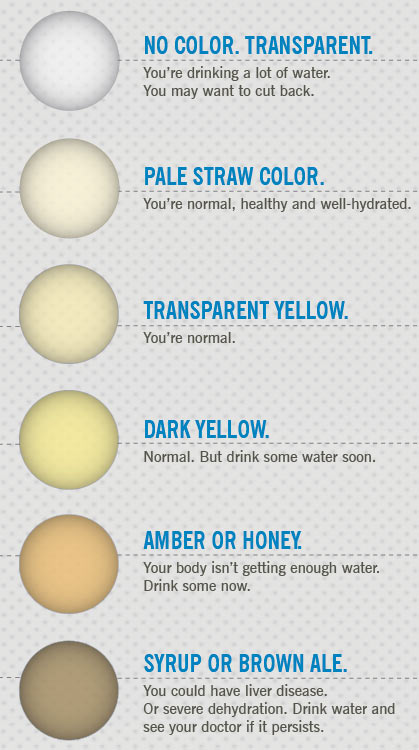
Don’t Wait Until You’re Thirsty To Drink Water
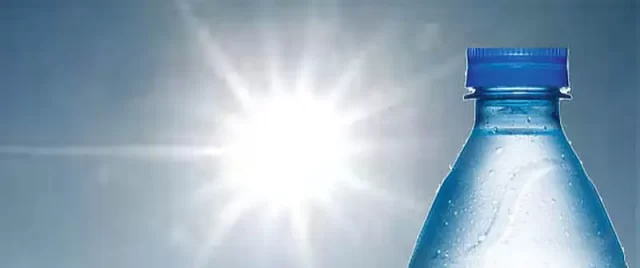
It’s easy to overlook the need to drink enough water and to remain optimally hydrated. Older people in particular lose some of their sense of thirst as they age.
Waiting for a ‘cue’ of thirst to trigger your motivation to drink water is already too late. When you first ‘feel’ thirst, you are already down more than a quart!
A common problem: Once you get the urge to drink, it’s typically quenched by only a few mouthfuls of water. Meaning that you are still ‘low’ and will continue to go ‘lower’! How often do you actually drink an entire quart of water when you feel thirsty? See what I mean?
Drink Fluids Early And Often
It takes time for the body to absorb fluids, so you must drink early and often. Saving your water for later can result in dehydration.
Thirst is not necessarily an indicator of dehydration. The body‘s thirst signal starts when you are already 2 to 5 percent dehydrated! Older people tend to have a diminished sense of thirst, so be particularly aware.
What To Drink, And How Much?
Someone exercising hard may lose more than a quart of water an hour!
The basic rule for avoiding dehydration is to drink plenty of fluids, but this doesn’t mean just any fluid.
Note: Diuretics such as caffeine or alcohol will not re-hydrate you as well as water. Also the body does not absorb highly sugared or carbonated beverages as rapidly, which means that soft drinks are less efficient at quenching thirst than plain water.
The best way to keep hydrated or to re-hydrate is to drink plain water.
How much? Simply monitor your urine color. When it’s back to pale or clear, you’re hydrated. Simple as that.
Tip: I work outside a lot, and during the summer months I dehydrate rather quickly. For a number of years I have been using an electrolyte replacement (a powder) which I stir in with my water for rapid hydration. It has made a very clear difference (I can feel the energy coming back) when I’ve become overly dehydrated.
Tip: Be sure to drink enough water during the winter months, when you may not realize that you’re actually getting dehydrated.
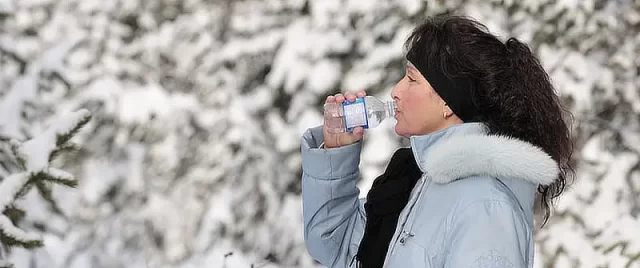
Being Chronically Dehydrated Leads To Kidney Stones
I have never had this problem and I hope that I never do!! I’ve heard that it is the most painful experience… Recently (and the reason I’m updating this article) I watched a video about kidney stones. I was shocked to realize the apparent pain that these can cause. It got me to thinking about what I can do to avoid getting kidney stones.
The NUMBER ONE WAY to reduce your risk of getting kidney stones is to drink plenty of water! Hydrate! There are a number of other factors that contribute to getting a kidney stone. But drinking lots of water is proven to be the primary mitigation method.
As I update this, it’s currently winter. I know that I don’t drink enough water during the winter. I just don’t think about it like I should. So I will be renewing my efforts.
Like I said earlier, the best way to monitor your hydration level is the color of your urine.
